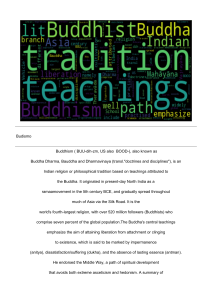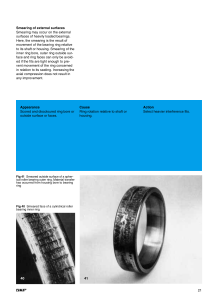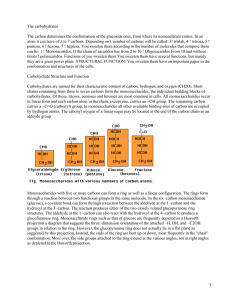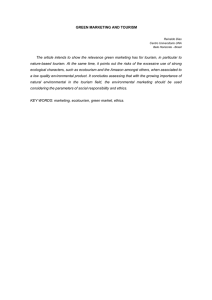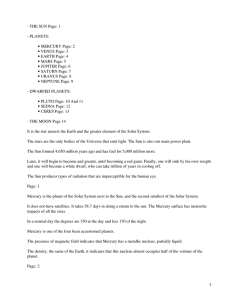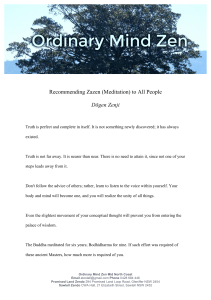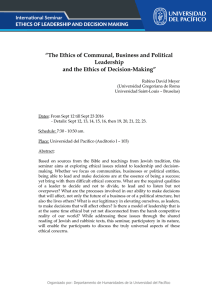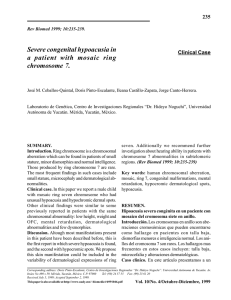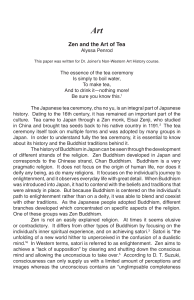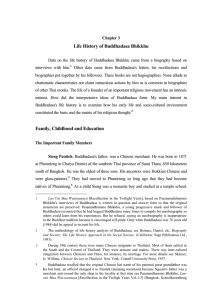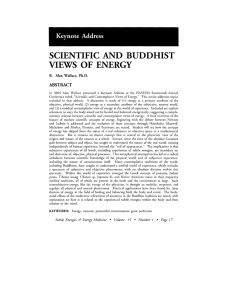The Zen of Software Testing
Anuncio
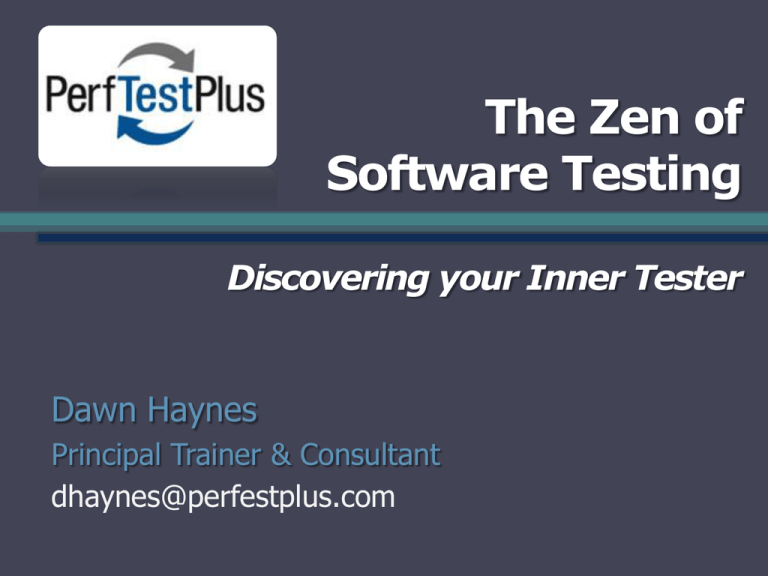
The Zen of Software Testing Discovering your Inner Tester Dawn Haynes Principal Trainer & Consultant [email protected] Our Beginnings Who am I? Who are you? What inspired this talk? General frustration about the state of software Encounters with testing industry vocalists Encounters with testers and testing teams Unexpected encounter with Tibetan Buddhism • Disclaimer © 2012 What Testing Teams ask for … Repeatable processes / improved processes Best practices Insurance (regression tests) Quantifiable measures of tasks and activities Ways to find all the bugs … faster Ways to be more effective Ways to be more efficient Magic © 2012 pixie dust … ? But you may not like what you get … Regression testing => Pesticide Paradox? Less time / fewer resources => Less testing? Automation => Less subjective data? Full regression reqs => Too much testing? Following rigid process => Following instincts? Heavy doc requirements => Less testing? Less testing => Less information? Less human interaction => Lower quality information? © 2012 Common Software Testing Methods Requirements based Specification based Risk based Historical Exploratory Others … © 2012 A Search for Reality The Universe in a Single Atom The Convergence of Science and Spirituality © 2005 By His Holiness the Dalai Lama “My confidence in venturing into science lies in my basic belief that as in science so in Buddhism, understanding the nature of reality is pursued by means of critical investigation …” © 2012 Our Journey Think Zen! Illustrate the role of ethics Use some frameworks in the pursuit of science to discover your inner using Zen tester by learning methodologies about your own and see how it default process Explore can apply to and the parallels what you exploratory between Buddhist do in testing and scientific testing style methods of testing and how they relate to what is needed in software testing, as opposed to what is used in a science lab © 2012 Parallels of Testing Methods Scientific Method -> Software Testing Proceeds from the observation of a material phenomena Test analysis Leads to a theoretical generalization Test conditions, test ideas Predicts the events and results based on conditions Test cases Tests the prediction with an experiment Test execution & results If theory is contradicted, the theory must be adapted Rework, if necessary © 2012 Some Methods for Defining Reality Reliable authority (defer to an expert/leader) Scripture Scientific results published in journals Experience (do it yourself) Empirical method or means Reasoned inference (~educated guess) From an observed phenomenon, directly evident to the senses, one can infer what is there or possibly what remains hidden © 2012 Buddha says … Do not accept the validity of his teachings simply on the basis of reverence to him Test the truth of his teachings through reasoned examination and personal experiment Buddhism accords the greatest authority to experience, with reason second, and scripture last © 2012 Ref: The Universe in a Single Atom Buddhist Testing Rule #1 Not finding something you are looking for DOES NOT PROVE it doesn’t exist Testing software and not finding defects does not mean defects are not there © 2012 Buddhist Testing Rule #2 If your testing and experience prove a tenet, assumption, rule, or understanding to be FALSE, you MUST accept the new information Even if there is a scripture (script) to follow, you must be able to accept, process and use the new information you discovered – any other interpretation would have us working as blinded and disabled creatures, or victims of denial © 2012 Buddhist Testing Rule #3 You must be open to new ideas and new information; proceed with healthy skepticism To believe the world is fixed and that someone else has figured it out and you are just there to follow the instructions, process, plan, script, best practices, or “we’ve always done it that way” is just too limiting Projects are dynamic and complex, and a flexible approach is required for success © 2012 The Spirit of Inquiry The investigative methods of science and Buddhism are similar in that they both rely heavily on empirical means They differ in that science proceeds from an external or material analysis and Buddhism from an internal or contemplative process Both share a commitment to keep searching for reality by empirical means and be willing to discard positions if the truth is different © 2012 Our Journey: Zen Model of Testing Testing is integral in the context of software testing projects Testing does not occur without the context of experience Testing should not occur without validating its purpose against the context of ethics © 2012 Zen Testing: The Context of Software Challenge the way you’ve always done things Ask questions; ask more questions Challenge your assumptions Work to understand the whys, determine if the whats and hows are appropriate © 2012 Basic Principles of the Context-Driven School 1. The value of any practice depends on its context. 2. There are good practices in context, but there are no best 3. 4. 5. 6. 7. practices. People, working together, are the most important part of any project's context. Projects unfold over time in ways that are often not predictable. The product is a solution. If the problem isn't solved, the product doesn't work. Good software testing is a challenging intellectual process. Only through judgment and skill, exercised cooperatively. http://www.context-driven-testing.com © 2012 Zen Testing: The Context of Experience Error guessing / stochastic Randomly aim fire Generic attacks Historical Actual failures / failure patterns Exploratory Combined experience and instincts Select a target aim fire © 2012 What’s your natural testing style? Caveman (break stuff) Newspaper Reporter (gather facts) Tasmanian Devil (be a spaz) Dog (can’t let the bone go) Sunday Driver (just cruising) Adventure Enthusiast (looks challenging) Tourist (looks interesting) Fish in a Fishbowl (short attention span) © 2012 Your Inner Tester: Getting to Zen Become more aware of your natural testing style Observe when it works well and when it doesn’t Experiment with other styles Work to use your inner tester (instincts) to their fullest extent and tame them when they are not productive © 2012 Zen Testing: The Context of Ethics Performing investigation in a responsible way Responsible to the organization • Risk, exposure, reputation, revenue loss Responsible to the project • Working toward the project’s goals • Serving the needs of the project’s stakeholders Responsible to the users / customers • Understanding the impacts of software errors & failures © 2012 Some Testers Follow a Code Association for Computing Machinery (ACM) Code of Ethics 1.2 Avoid harm to others 1.3 Be honest and trustworthy 1.8 Honor confidentiality 2.1 Strive to achieve the highest quality, effectiveness and dignity in both the process and products of professional work 2.3 Know and respect existing laws pertaining to professional work 2.4 Accept and provide appropriate professional review © 2012 Some Take an Oath The Iron Ring is a symbolic ring worn by many Canadian engineers. There is a rumor that the rings are made from the steel of a beam from the Quebec Bridge, which collapsed during construction in 1907, killing 75 construction workers, due to poor planning and design by the overseeing engineers. It’s not true, but the ring is a reminder. The Ring is a symbol of both pride and humility for the engineering profession. The Ring is always worn on the little finger of the working hand, where the facets act as a sharp reminder of obligation while the engineer works. © 2012 Thought Provoking Quote Where is the wisdom we have lost in knowledge? Where is the knowledge we have lost in information? -T. S. Eliot (1888-1965) We’ve come so far but where has it gotten us? And if we ask the questions, where can we go? © 2012 Testing Industry Credits Software testing challenges James Whittaker, Elisabeth Hendrickson, Danny Faught, Michael Bolton & many others SQE, ASTQB, IEEE, ISO, ASQ Exploratory testing concepts Cem Kaner, James Bach, Andy Tinkham Ethics in testing Cem Kaner, Robert Sabourin, Scott Barber Association for Software Testing (AST) Association for Computing Machinery (ACM) © 2012 Contact Information Dawn Haynes [email protected] Good Luck & Happy Testing! © 2012 Q&A Comments, experiences to share?
